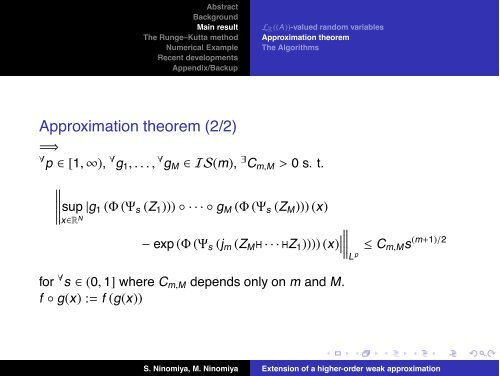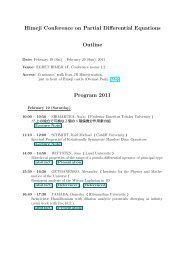Slides
Slides
Slides
- No tags were found...
You also want an ePaper? Increase the reach of your titles
YUMPU automatically turns print PDFs into web optimized ePapers that Google loves.
AbstractBackgroundMain resultThe Runge–Kutta methodNumerical ExampleRecent developmentsAppendix/BackupL R ((A))-valued random variablesApproximation theoremThe AlgorithmsApproximation theorem (2/2)=⇒∀ p ∈ [1, ∞), ∀ g 1 ,..., ∀ g M ∈IS(m), ∃ C m,M > 0s.t.∥ sup |g 1 (Φ (Ψ s (Z 1 ))) ◦···◦g M (Φ (Ψ s (Z M ))) (x)x∈R N− exp (Φ (Ψ s (j m (Z M ⊢⊣ · · ⊢⊣ · Z 1 )))) (x) ∣ ∥ ∥∥∥∥L∣ ≤ C m,M s (m+1)/2pfor ∀ s ∈ (0, 1] where C m,M depends only on m and M.f ◦ g(x) := f (g(x))S. Ninomiya, M. Ninomiya Extension of a higher-order weak approximation




